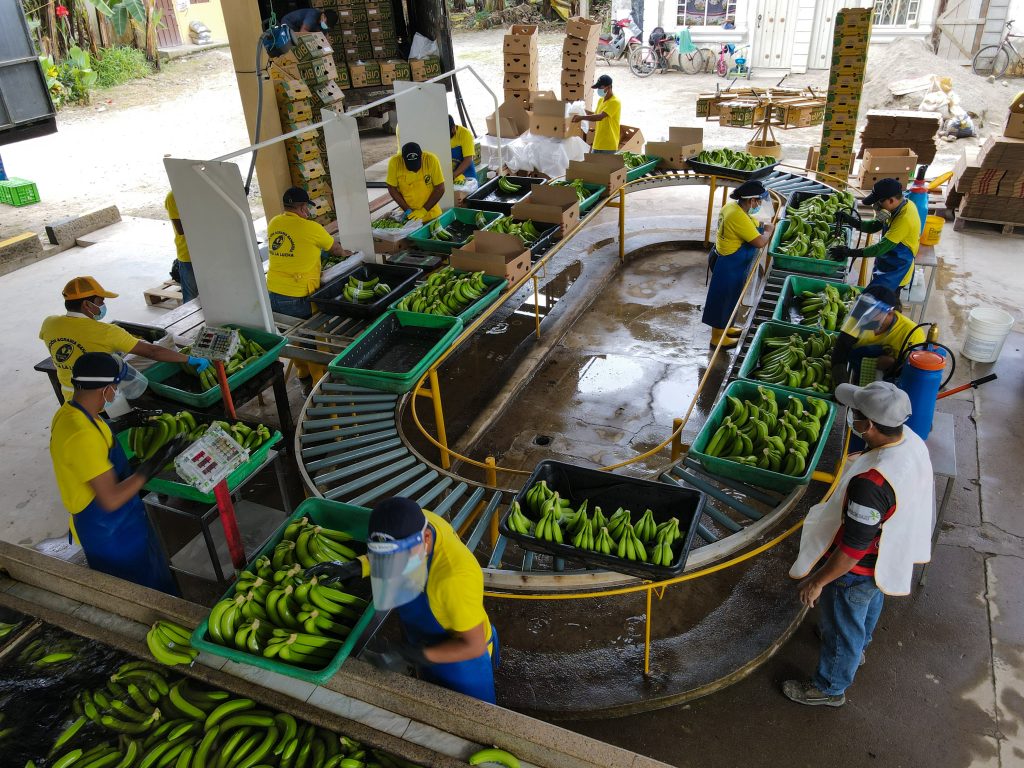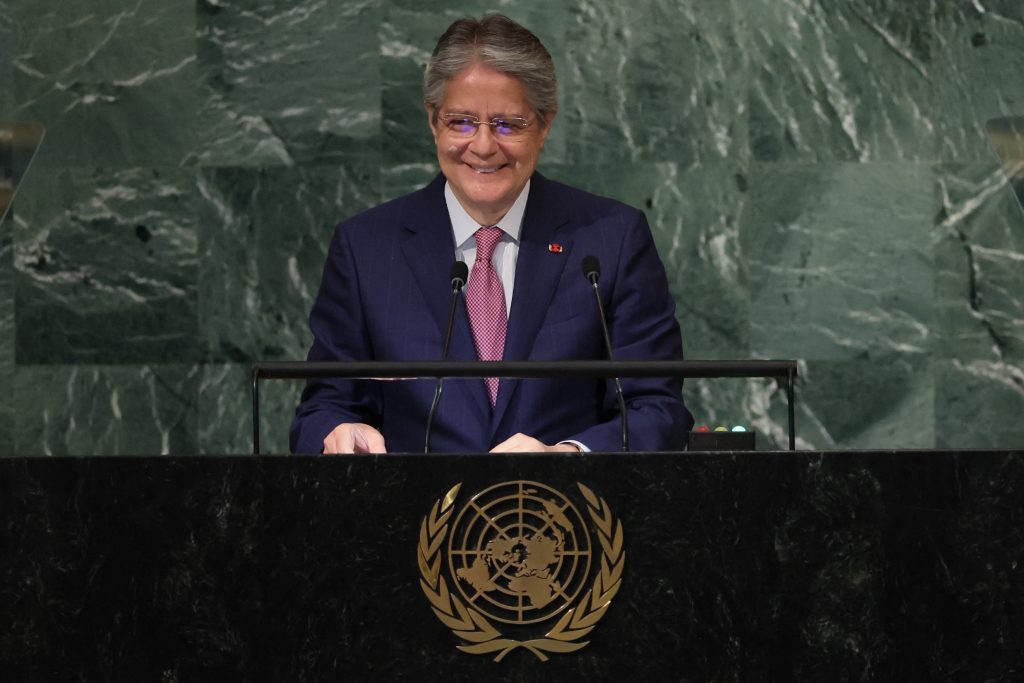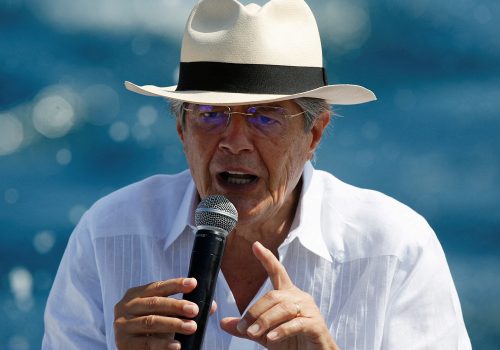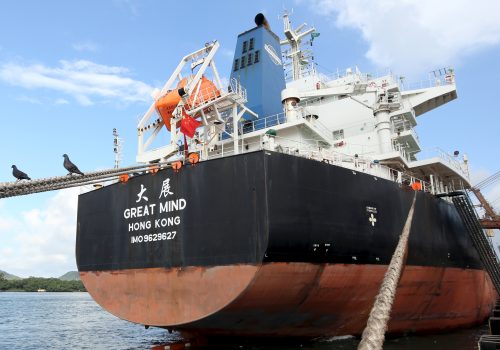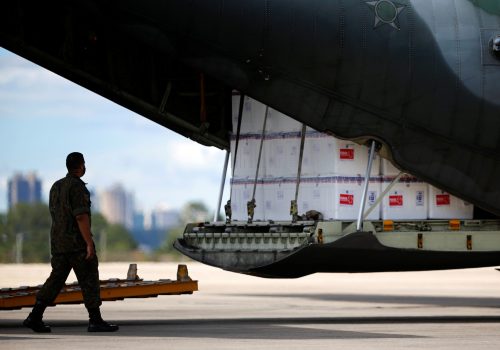Monday’s White House meeting between Ecuadorian President Guillermo Lasso and US President Joe Biden is slated to cover security, migration, and sustainability, which are priorities for both administrations. But trade may be the most significant agenda item—particularly if the Biden-Lasso meeting is used to kickstart negotiations under the US-Ecuador Fair Trade Working Group, which the two countries announced on November 1. Prioritizing trade talks will maximize the potential benefits for Ecuador, enhance the United States’ influence in the region, and counter China’s rising presence in Latin America and the Caribbean.
The United States needs to further engage with Ecuador on trade to show its support for the current Ecuadorian government, which has focused on promoting core US interests of democracy and prosperity locally and regionally. Latin America and the Caribbean have undergone a major political shift in the last couple of years, and the United States needs to find ways to remain relevant in the region—starting with Ecuador.
Although US-Ecuador ties have advanced on multiple fronts this year, a concrete positive outcome from the partnership remains to be seen. In the past couple months, Ecuador has hosted five US senators, two undersecretaries, Biden’s special presidential advisor for the Americas, and US Trade Representative Katherine Tai. All of the visits have sought to strengthen bilateral ties on shared challenges such as counter-narcotic regulations, the Venezuelan refugee crisis, transnational crime, and commercial ties.
The growing partnership also resulted in passage of the US-Ecuador Partnership Act, requiring the State Department to increase cooperation with Ecuador’s government on areas of shared interest; an open line of credit between the US Federal Reserve and Ecuador’s central bank; the first visit from a South American president to the White House in 2022; and the creation of the Fair Trade Working Group. These are all steps in the right direction, yet they won’t result in lasting impact unless Washington helps Lasso’s government deliver tangible economic results locally to treat the discontent that culminated in an eighteen-day protest and an attempt to strip Lasso of his presidency earlier this year.
One of Lasso’s main priorities when he took office was to sign a free trade agreement with the United States. However, protectionist sentiments in Washington continue to frustrate Lasso’s efforts to explore the full potential of bilateral economic ties, since ongoing commercial talks are limited in scope. For instance, the Fair Trade Working Group focuses mostly on expanding the Trade and Investment Council Agreement, signed in 1990 and renewed in 2020 during Lenin Moreno’s administration. The working group will host negotiations on labor, environment, and digital trade. But Ecuador’s main exports are commodities—petroleum, bananas, seafood, coffee—which are subject to globally determined market prices. Therefore, the working group’s economic impact will likely be marginal at best for either country.
The United States’ lack of impact opens the door for China. Last week, Lasso announced that Ecuador’s free trade agreement with China is “practically signed.” Earlier this year, China surpassed the United States as Ecuador’s main commercial partner on non-petroleum goods. According to Lasso, the immediate potential of the free trade agreement will mean an additional one billion dollars in exports to China. Ecuadorian consumers will have access to high-tech products, supplies, tools, vehicles, and machinery at better prices. Ecuador also renegotiated its debt with China, securing savings of almost $1.4 billion, which Lasso said will be invested in social programs.
The absence of more comprehensive negotiations between Quito and Washington prevents the United States from counterbalancing China’s growing influence over trade and investment frameworks across the region, as Ecuador is set to become the fourth country in Latin America to have a free trade agreement with China. The Fair Trade Working Group must kick off those comprehensive negotiations, not only bringing Ecuador cutting-edge US technology and environmental expertise, but also enhancing the US economic presence and influence in the region, which is on decline in comparison to that of China.
Not a lost cause
There are still important ways in which Ecuador can use the momentum of both its growing partnership with the United States and the Fair Trade Working Group to expand the scope of commercial relations. In particular, Lasso should use this foundation to expand the Protocol on Trade Rules and Transparency, an agreement signed in 2020. Ecuador hopes to use the protocol to secure more US investment and market access for its main exports including many of its star agricultural products. At the White House meeting, Lasso and Biden should focus on advancing the negotiations of the Fair Trade Working group in its core areas, starting with digital trade.
The pandemic helped boost digital trade in the form of e-commerce, which grew by approximately 20 percent in Ecuador, from $2.76 million in 2020 to $3.22 million in 2021. That’s led 53 percent of Ecuadorian companies to focus on the development of mobile applications and other digital platforms and tools, in many cases setting them up without substantial infrastructure and/or regulations, increasing the risk for cyberattacks and unethical consumer data usage. This is a potential area of collaboration between the United States and Ecuador, as the Fair Trade Working Group can support Ecuador’s expansion of digital infrastructure, e-commerce platforms, and cybersecurity through both knowledge sharing and the provision of US cutting-edge technology to reduce cyber risks. This also provides an advantage for the United States: Ecuador ranks sixth in Latin America in retail purchases made online, opening an important market for absent US e-commerce giants such as Amazon. Similarly, public services that rely on secure digital systems, such as health care, transportation, and social security, would also benefit greatly from these efforts. For instance, the commercial debut of Quito’s Metro in March of next year would be the ideal pilot project for a cybersecurity collaboration.
Additionally, Ecuador can benefit from both the Biden administration’s and the working group’s focus on sustainable development and environmental conservation. However, it may be a double-edged sword for Ecuador, as petroleum and precious metals make up approximately 32 percent of its exports. As Ecuador’s main consumer of petroleum, the United States should help Ecuador build environmentally responsible industries. Modernizing Ecuador’s traditional energy and mining industries in a cost-effective way is necessary for the wider success of the global energy transition, and it will help prepare these sectors for green investments. A good starting point would be the mining sector, which, despite being underdeveloped, has emerged as the country’s third-largest export engine. There’s a bonus: Ecuador can provide US electric vehicle producers—newly energized by the Inflation Reduction Act’s tax breaks—with raw materials such as copper sourced closer to home.
Finally, labor is perhaps the most important—and complicated—area of focus. About 61 percent of Ecuador’s workers are informal. And one of the main ways to bring informal businesses into the formal economy is through financial inclusion. This working group can leverage its focus on digital trade to support the expansion of Ecuador’s digital payment systems to increase access to credit. Currently, Ecuador’s banking sector has relatively strict credit-access regulations, so much so that credit portfolios at cooperatives have been increasing rapidly, despite the fact that those cooperatives have little to no regulatory oversight and are much riskier than banks. Expanding digital payment systems to informal businesses would allow banks to monitor credit payments, set spending controls, help businesses build a credit history and provide financial literacy programs. This could ease banks’ concerns around lending to “riskier” businesses. If the United States can help bring about this kind of broader financial inclusion, it would go a long way toward improving its standing across the region.
Time for results
The United States certainly realizes the regional influence it gains from a strong partnership with Ecuador, but it is time to translate that value into action. Although the immediate economic impact of the Fair Trade Working Group will likely be minimal, it shouldn’t be disregarded. Both the United States and Ecuador should leverage the platform to advance action-oriented plans in digital trade, the environment, and labor. Both governments need to move fast to start delivering results, or else risk rendering the Fair Trade Working Group insignificant in the shadow of Ecuador’s billion-dollar trade deal with China.
Isabel Chiriboga is a project assistant at the Atlantic Council’s Adrienne Arsht Latin America Center and is originally from Quito, Ecuador.
Further reading
Thu, Mar 3, 2022
Ecuador is a test case for how the US can counter Beijing’s influence in Latin America
New Atlanticist By Gabriel Alvarado
Ecuador's dealings in China highlighted just how important it will be for the United States to nurture its ties with governments that have shown an interest in cooperating with Washington.
Mon, Jul 25, 2022
What’s next for Chinese investment in Latin America and the Caribbean?
Timely Commentary & Analysis By
China’s investment in Latin America and the Caribbean (LAC) has steadily grown in recent years, drawing attention from government and private-sector leaders throughout the region as well as the United States. Baker McKenzie and Atlantic Council experts provide their insights on the opportunities and challenges in working with China.
Wed, Feb 23, 2022
US-China vaccine diplomacy: Lessons from Latin America and the Caribbean
Report By
The implications of diverging COVID-19 responses, notably at the onset of the pandemic’s rise in the region, will reverberate beyond the health sector. What might the differing US and China pandemic approaches portend for future influence in the region?
Image: Harvested bananas are sorted by workers at the "La Lucha" estate of the Agricultural Association of Banana Producers in El Oro, Ecuador. Photo by David Diaz/DPA via Reuters.
